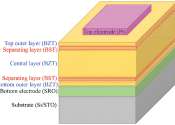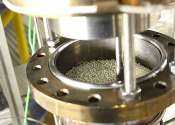Researchers increase storage, efficiency and durability of capacitors
Pacemakers, defibrillators, radar technology and electric vehicles all need electrical components called capacitors that can store and release a lot of energy in a matter of a few microseconds. Researchers at the University ...
6 hours ago
0
20









